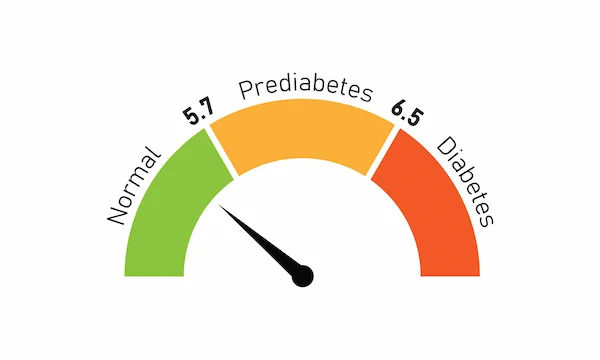Cushing Syndrome Overview and Management
Discover an in-depth overview of Cushing syndrome, including its causes, common symptoms, and diagnosis. Learn about effective management strategies and treatment options to control hormone levels and improve quality of life.

Written by Dr. Rohinipriyanka Pondugula
Reviewed by Dr. Md Yusuf Shareef MBBS
Last updated on 25th Aug, 2025

Cushing Syndrome is a rare but serious hormonal disorder that occurs when your body is exposed to high levels of the hormone cortisol for a long time. Cortisol, often called the "stress hormone," helps regulate metabolism, blood pressure, and immune function. However, too much cortisol can lead to various health problems.
If you or someone you know has been diagnosed with Cushing Syndrome, it’s natural to feel concerned. The good news is that with proper diagnosis and treatment, many people can manage their symptoms effectively. This article will help you understand the condition, its causes, symptoms, and how to manage it.
What Causes Cushing Syndrome?
Cushing Syndrome can develop due to different reasons:
1. Prolonged Use of Corticosteroid Medications: Medications like prednisone, used for conditions like asthma, arthritis, or autoimmune diseases, can lead to Cushing Syndrome if taken in high doses for a long time.
2. Tumors: Sometimes, a benign (non-cancerous) tumor in the pituitary gland (Cushing’s disease) or adrenal glands can produce excess cortisol. Rarely, tumors in other organs (like the lungs) can also trigger cortisol overproduction.
3. Adrenal Gland Disorders: Problems in the adrenal glands, such as overgrowth or tumors, can cause excess cortisol secretion.
What Are the Symptoms of Cushing Syndrome?
The symptoms develop gradually and can vary from person to person. Common signs include:
Weight gain, especially around the abdomen and face (a "moon face" appearance)
Thin arms and legs compared to a heavier torso
Purple or pink stretch marks on the abdomen, thighs, and arms
Slow healing of cuts and infections
High blood pressure
Muscle weakness and fatigue
Mood changes, such as depression, anxiety, or irritability
Increased thirst and urination (due to high blood sugar)
Thinning skin that bruises easily
Irregular or absent periods in women
Decreased libido in men
If you notice these symptoms, it’s important to consult a doctor for proper evaluation.
How Is Cushing Syndrome Diagnosed?
Since symptoms can overlap with other conditions, doctors use specific tests to confirm Cushing Syndrome:
1. Blood and Urine Tests: Measures cortisol levels over 24 hours.
2. Saliva Test: Checks late-night cortisol levels, which are usually low in healthy individuals.
3. Imaging Tests: MRI or CT scans help detect tumors in the pituitary or adrenal glands.
If you suspect you may have Cushing Syndrome, booking a consultation with an endocrinologist (hormone specialist) can help in early diagnosis and treatment.
Consult Top Specialists
How Is Cushing Syndrome Treated?
Treatment depends on the cause:
1. Reducing Steroid Use: If caused by long-term steroid medication, doctors may gradually lower the dose or switch to alternative treatments.
2. Surgery: If a tumor is the cause, surgical removal may be recommended.
3. Radiation Therapy: Used if surgery isn’t possible or if the tumor returns.
4. Medications: Drugs that block cortisol production may be prescribed if surgery isn’t an option.
Lifestyle and Dietary Tips for Managing Cushing Syndrome
While medical treatment is essential, lifestyle changes can help manage symptoms and improve overall health:
1. Eat a Balanced Diet
Focus on low-sodium foods to help control blood pressure.
Include calcium and vitamin D-rich foods (like milk, leafy greens, and fortified cereals) to strengthen bones.
Limit sugar and refined carbs to prevent blood sugar spikes.
2. Exercise Regularly
Gentle activities like walking, yoga, or swimming can help maintain muscle strength and reduce fatigue.
Avoid high-intensity workouts if you have muscle weakness.
3. Monitor Blood Pressure and Blood Sugar
Regular check-ups can help prevent complications like diabetes and heart disease.
4. Manage Stress
Since cortisol is linked to stress, relaxation techniques like deep breathing, meditation, or mindfulness can be helpful.
5. Protect Your Skin
Use moisturisers to prevent dryness and avoid injuries that may lead to slow-healing wounds.
When to Seek Medical Help?
If you experience symptoms like rapid weight gain, high blood pressure, or extreme fatigue, consult a doctor. Early diagnosis and treatment can prevent complications such as diabetes, osteoporosis, and heart disease.
Conclusion
Cushing Syndrome can be challenging, but with the right medical care and lifestyle adjustments, many people lead healthy lives. If you suspect you have symptoms, don’t hesitate to reach out to a healthcare provider.
For expert consultation and diagnostic tests, you can book an appointment with Apollo 24|7’s endocrinologists. Early detection and proper treatment make a big difference in managing this condition effectively.
Consult Top Specialists
Consult Top Specialists

Dr. Anand Ravi
General Physician
2 Years • MBBS
Bengaluru
PRESTIGE SHANTHINIKETAN - SOCIETY CLINIC, Bengaluru

Dr. Nithin Reddy Modhugu
Endocrinologist
6 Years • MBBS, MD (General Medicine), DNB (Endocrinology)
Hyderabad
Dr. Nithin's Endocrine Clinic, Hyderabad
(100+ Patients)

Dr. Gayatri S
Endocrinologist
4 Years • Suggested Qualifictaion- MBBS, MD (Internal Medicine), DM (ENDOCRINOLOGY)
Nellore
Narayana hospital, Nellore

Dr. Shrikrishna V Acharya
Endocrinologist
25 Years • MBBS, MD, DM(Endocrinology), MRCP (Endocrinology)
Bengaluru
Apollo Clinic, JP nagar, Bengaluru

Dr. E Prabhakar Sastry
General Physician/ Internal Medicine Specialist
40 Years • MD(Internal Medicine)
Manikonda Jagir
Apollo Clinic, Manikonda, Manikonda Jagir
(125+ Patients)




